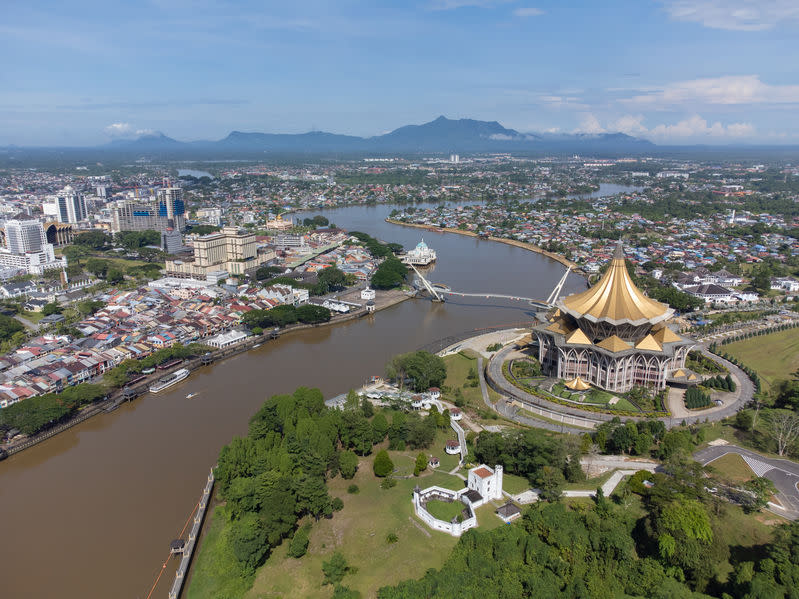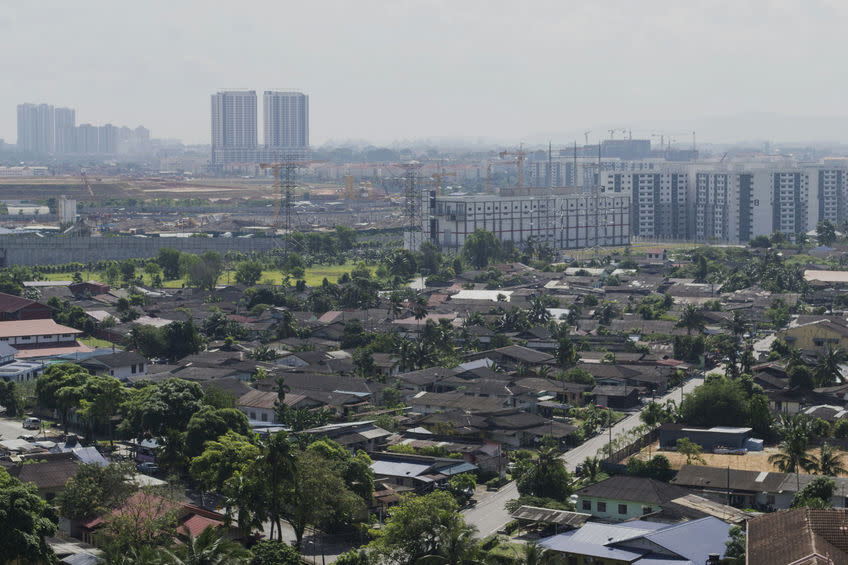S-MM2H participants now allowed to work in Sarawak, 1,444 federal land lots remains undeveloped and more

2nd August – 7th August
Following refinements on Sarawak-Malaysia My Second Home’s (S-MM2H) application procedures, participants in the programme are now allowed to work within the state.
Meanwhile, the Director-General of the Lands and Mines Department (JKPTG) data showed that a total of 1,444 federal land plots, spanning over 9,399.09ha, have not been developed for five years or more from the date of land ownership.
1. S-MM2H participants now allowed to work in Sarawak
Following refinements on Sarawak-Malaysia My Second Home’s (S-MM2H) application procedures, participants in the programme are now allowed to work within the state.
Datuk Seri Abdul Karim Rahman Hamzah, Tourism, Creative Industry and Performing Arts Minister of Sarawak, said the programme’s successful applicants had been informed of the permission to work, with jobs allowed including part-time lecturing or being a minority partner of Sarawak companies.
“For any part-time work, it must be based on sectors where there are not many Sarawakians available and it must be approved by Immigration, Labour Monitoring Unit (ILMU) in the Sarawak Premier Department,” said the minister as quoted by Bernama.
Foreigners who are below 40 years old can also participate in the S-MM2H as long as they have children who are below 21 and are studying within the state or they are undergoing long-term medical treatments in Sarawak.
Abdul Karim revealed that 2,198 participants had been approved for the S-MM2H programme since 2007.
The top 10 countries were the United Kingdom, China, Taiwan, Hong Kong, Singapore, the United States, South Korea, Indonesia, Australia and Japan.
2. 1,444 federal land lots remains undeveloped
A total of 1,444 federal land plots, spanning over 9,399.09ha, have not been developed for five years or more from the date of land ownership, showed data from the Director-General of the Lands and Mines Department (JKPTG).
With this, Chief Secretary to the Government Tan Sri Mohd Zuki Ali mandated federal ministries and departments as users (KJP) to review and update the database under its purview to expedite development plans, reported the New Straits Times.
He noted that this is in line with the Federal Land Management New Direction 2021 – 2023 policy that provides that KJP can only keep federal land for up to five years, with an appeal period of two years.
For land that has yet to be developed, KJP should consult with the Federal Land Commissioner (PTP) on the best method to maximise revenues for the federal government.
“In this regard, methods such as mortgages and leasing can be considered. If the land is no longer needed, the method of conversion to another KJP or disposal through handing it back to the state authorities can be studied and presented to the Federal Land Use and Development Special Committee (JKPKTP),” said Mohd Zuki.
3. New mixed development to boost Iskandar Malaysia’s property market
Analysts expect Iskandar Malaysia’s property market to get a boost from ongoing initiatives and a proposed new development at the Johor Bahru – Singapore Rapid Transit System (JB-SG RTS) link.
RHB Research believes the proposed project could establish a new pricing benchmark within the city centre as well as push up process at nearby developments, reported The Star.
“The special 15% income tax rate granted to eligible skilled workers is expected to attract a higher income population to stay in Iskandar Malaysia, which should create a favourable demand for housing moving forward,” said the research house.
Notably, MRT Corp has entered into a memorandum of understanding with Hong-Kong based MRT Corp Ltd for the construction of a mixed development right next to the JB-SG RTS link.
The mixed development will connect Johor Bahru’s existing transport services, including city buses, KTM electric train service as well as future bus rail transit.
“The collaboration is another milestone achieved which should ensure that the RTS terminal and the related components are properly planned and designed,” said RHB Research.
4. 5,000 affordable home promise a golden opportunity for Kelantan’s B40 group
Barisan Nasional (BN) and Pakatan Harapan’s (PH) commitment to construct 5,000 affordable housing units in the next five years should the alliance win the upcoming state elections in Kelantan provides a golden opportunity for the state’s B40 group to climb the property ladder.
Datuk Samsuri Awang Mat, Kelantan Chapter Deputy Chairman of Real Estate and Housing Developers’ Association (REHDA), said developers find it challenging to offer affordable homes amid the rising prices, reported Bernama.
“But, if BN and PH can do this if it is given a change to govern Kelantan, then this effort must be supported,” he said.
Aside from the 5,000 affordable homes, BN and PH’s pledges for Kelantan include a 50% rebate discount on housing plan process fees for first-time homebuyers from the B40 group, youths, and newly-formed families.
Norlaila Rahim, a resident of Kampung Tebing, Sabak, described the offer as a “lifeline” for those who could not afford to buy homes.
“If BN and PH can offer affordable homes here, then it is music to our ears and something that should be backed,” said the 41-year-old resident.”
5. Long wait for house titles over
After waiting for almost 20 years, 601 property owners within Taman Putra Perdana in Sepang, Selangor have finally received the titles for their homes.
Caretaker Selangor Mentri Besar Datuk Seri Amirudin Shari said they were the first group out of the 9,000 property owners who are waiting for their individual titles.
He shared that the state aims to resolve this issue by early next year, reported Bernama.
“Due to irresponsible property developers, the cost of obtaining the individual titles that was supposed to be borne by the developer has been transferred to the owners,” he said.
To address this unfair situation, the state has decided to cover these costs.
And while some plots may be more complex, the state is committed to finding a solution for all affected property owners.
“We will settle it one by one,” he said.





